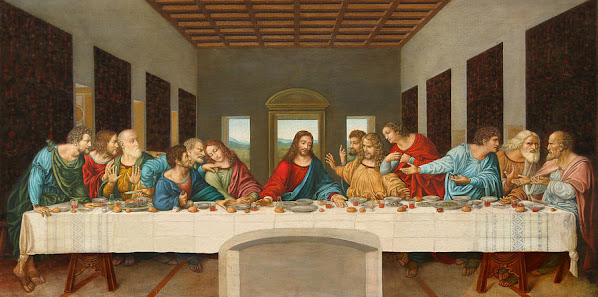Subtitle: Unlocking the secrets of the Last Supper
•
The first Passover and the ceremony
Moses transmitted on God’s behalf to help the Israelites remember His
deliverance of them;
•
The manna that God miraculously
provided daily in the wilderness for forty years;
•
The table of showbread (bread of the
Presence) in the tabernacle and temple, and the practices ordained for it;
•
Levitical laws regarding the eating of
the blood of animals human flesh;
•
Jewish culture and writings (outside
the Torah) regarding expectations of a coming Messiah to lead them to a new
promised land, after the manner of Moses;
In the New Testament record of Jesus’ words
and actions, this book cites the explanations that Jesus Himself gave for
establishing the Christian practice of Holy Communion as a command for all
believers.
•
In John 6:51, He discussed the topic
of eating His flesh and drinking His blood to have eternal life, and linked
bread to flesh.
•
In the Lord’s Prayer (Matthew 6:11),
He taught us to pray for daily bread daily, but the choice of Greek words
suggests this was not just providential provision, but supernatural manna-like
spiritual provision we are to seek each day.
•
At the Last Supper, when he commanded
His disciples to “do this in remembrance of Me” (Luke 22:19, 1 Corinthians
11:24-25), He explicitly linked Passover to His death on the cross, and to His
command to thusly remember Him.
•
As a seldom noted detail, He postponed
drinking the fourth cup of the traditional Jewish Seder celebration until His
death on the cross, to precisely fulfill the type.
The author, Brian Pitre, being
Catholic, makes the case that these items, taken together, constitute
compelling evidence for the real presence of the body and blood of Christ in
the elements of the Eucharist. I feel the discussion is incomplete. The difference
between interpreting words as being a type, a metaphor, a symbol vs. the
assertion of a genuine spiritual reality is at the heart of interpreting
Scripture. So the meticulous tracing of Jewish roots for the Last Supper and
the Lord’s Supper ends falling short.



_-_Google_Art_Project_-_edited.jpg)







